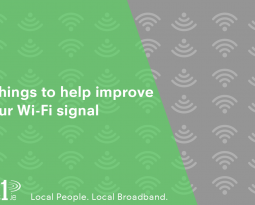You would be forgiven for thinking half the Irish countryside is wired up with fibre broadband, the gold standard of the industry, given the amount of company announcements we’re subjected to.
However, Comreg figures, released this week, show there are only 12,076 households and businesses in the State actually benefiting from a pure fibre connection, known in the trade as a fibre-to-the-premise (FTTP), which equates to about .006 per cent of households.
The disparity stems from the fact that telcos tend to conflate “premises passed” by the new fibre technology with those actually connected to it, blurring the lines between FFTPs and fibre-enhanced connections.
In most areas the new technology only runs to the street cabinet, with the last hop – as they call it in the industry – to the house or premises completed via the old copper connection, which can slow broadband speeds considerably, depending on how degraded the original copper is.
All of which is not to say households aren’t benefiting from fibre, just not as much as telcos would have us believe.
Comreg’s report does, however, show that broadband speeds, despite the public outcry, have got significantly faster.
It found that 67 per cent of all fixed-line connections enjoyed speeds equal to or greater than 30 megabits per second, up from 58 per cent in the first quarter of 2016.
Telcos Eir, Siro and Enet, which are vying for the Government’s National Broadband Plan, have been busy investing in their networks ahead of the bidding process later this year. The Government’s scheme is expected to deploy predominantly fibre technology to insure against the early obsolescence, a feature of previous State-backed plans.
However, a potential stumbling block may be the final 10 per cent of homes covered by the scheme, which are located in the hardest-to-reach areas because of a legacy of one-off housing and dodgy planning.
A similar initiative in the UK had to be ditched because of the cost of running cable to remote cottages and farmsteads. It remains to be seen whether we’ll escape the same fate when comes to the last hop.






